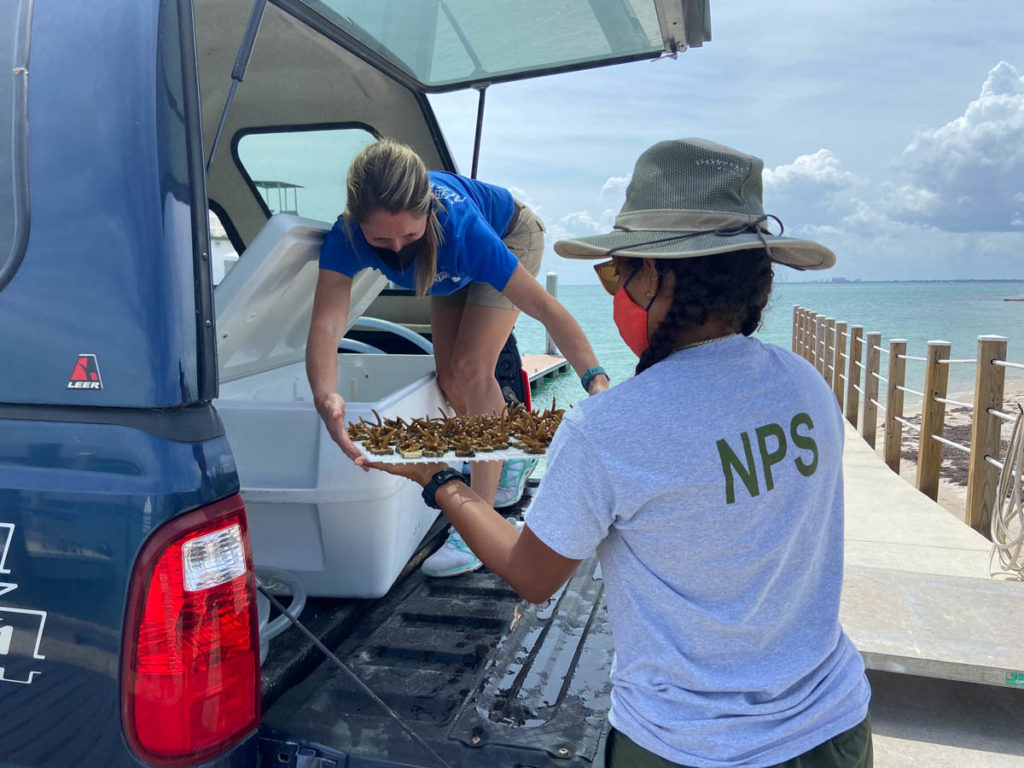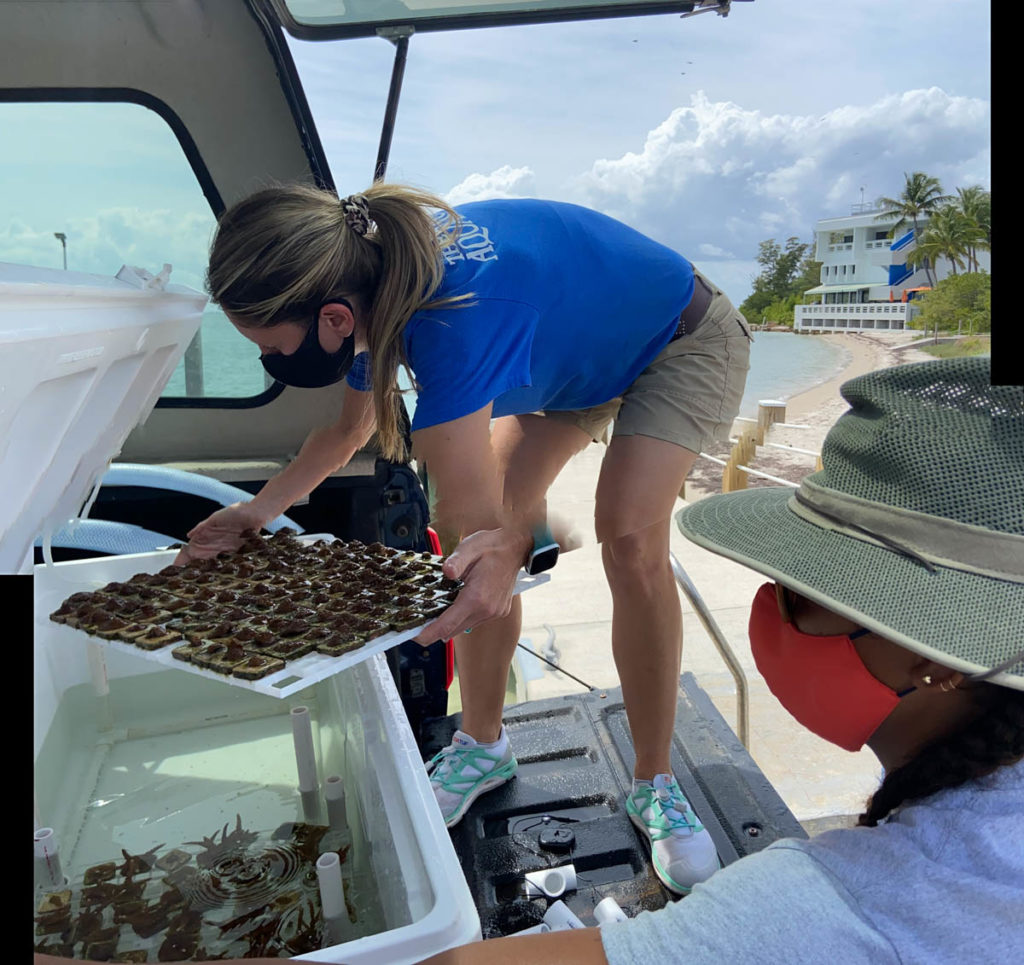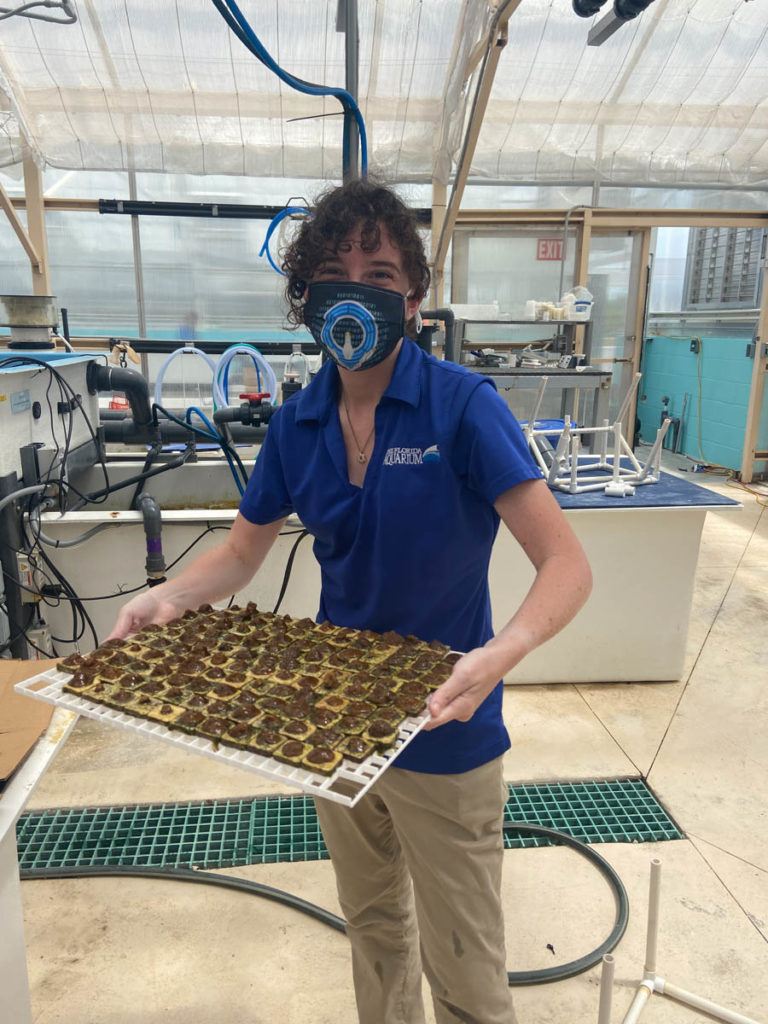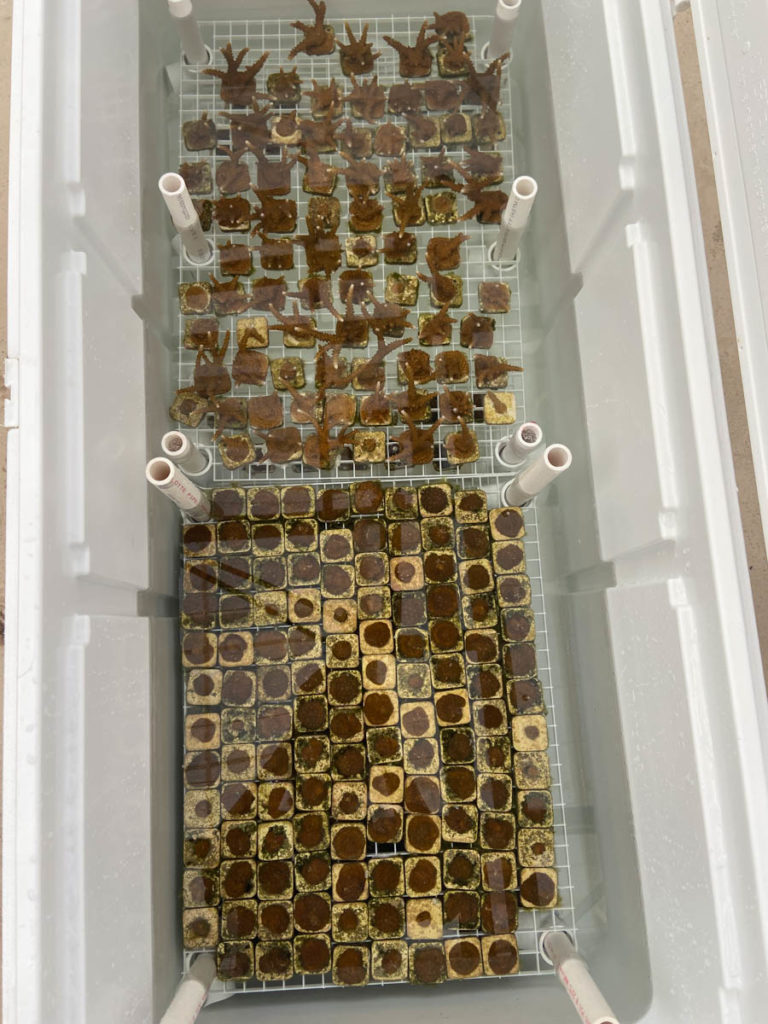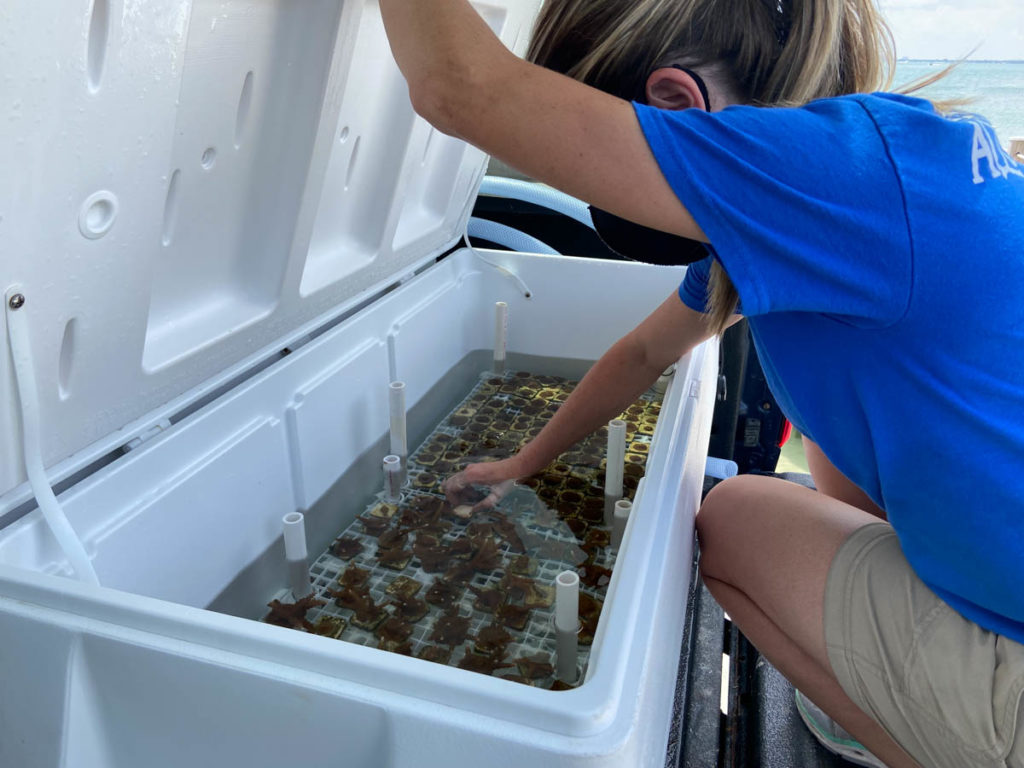As National Park Month commences, newly outplanted mountainous star coral (Orbicella faveolata) are growing in Biscayne National Park (BNP). This important act of conservation is a direct result of a partnership between The Florida Aquarium and Biscayne National Park. As an important reef-building species that has suffered high mortality in recent years from the Stony Coral Tissue Loss disease outbreak, the mountainous star coral is a key target for restoration.
With a general agreement in place, the duo is the first Aquarium-Park Partnership (APP) to participate in the Zoo-Park Partnerships for America’s Keystone Wildlife Project initiative; the joint initiative of National Park Service and Association of Zoos and Aquariums (AZA) pairs zoos and aquaria with national parks across the country.
“Wildlife are part of the historical landscape our nation’s parks sustain and interpret,” said Julie Anton Randall, APP Project Founder and Director. “AZA-accredited zoo and aquarium partners contribute expertise and resources to help parks meet America’s wildlife health and population recovery goals.”
The exciting partnership between The Florida Aquarium and Biscayne National Park focuses on the conservation of the park’s coral reef ecosystems which are in decline from a wide range of threats including climate change impacts such as increased water temperature and acidification, disease such as Stony Coral Tissue Loss, pollution, overfishing, invasive species and water quality degradation.
The Florida Aquarium proudly serves as an industry leader in protecting, sexually reproducing and developing the techniques needed to breed and care for many threatened species of coral and thousands of coral offspring. Scientists from The Florida Aquarium care for 14 species of coral native to Florida.
Among those coral where the mountainous star coral grown from gametes collected by BNP staff during a 2019 spawning event in the park. The gametes were fertilized at the park and settled onto small tiles to allow for the animal’s growth and development before being transferred to The Florida Aquarium for rearing in December 2019.
Then in April of 2021, the Aquarium transported 143 juvenile corals (18-months old and approximately 3 cm in diameter) back to a nursery, maintained by University of Miami Rosenstiel School for Marine and Atmospheric Science (RSMAS) and located within the Park, for placement in a natural but protected habitat where they can acclimate to ocean conditions. The time spent in a land-based nursery provided an extensive amount of care critical for helping this slow-growing coral species mature in a protected setting.
In July 2021, after several months in the ocean-based nursery, the now juvenile mountainous star coral were successfully returned back to the reef in Biscayne National Park by divers from the Park and NOAA Southeast Fisheries Science Center.
“This unique partnership maximizes animal husbandry and field conservation techniques to increase coral genetic diversity and advance the protection and restoration of threatened species in the Park” says Keri O’Neil, The Florida Aquarium’s Coral Conservation Program Manager & Senior Scientist. “With the help of key coral conservation partners from the University of Miami Rosenstiel School for Marine and Atmospheric Science (RSMAS), these juvenile corals have now been returned to the waters of their origin in Biscayne National Park.”



